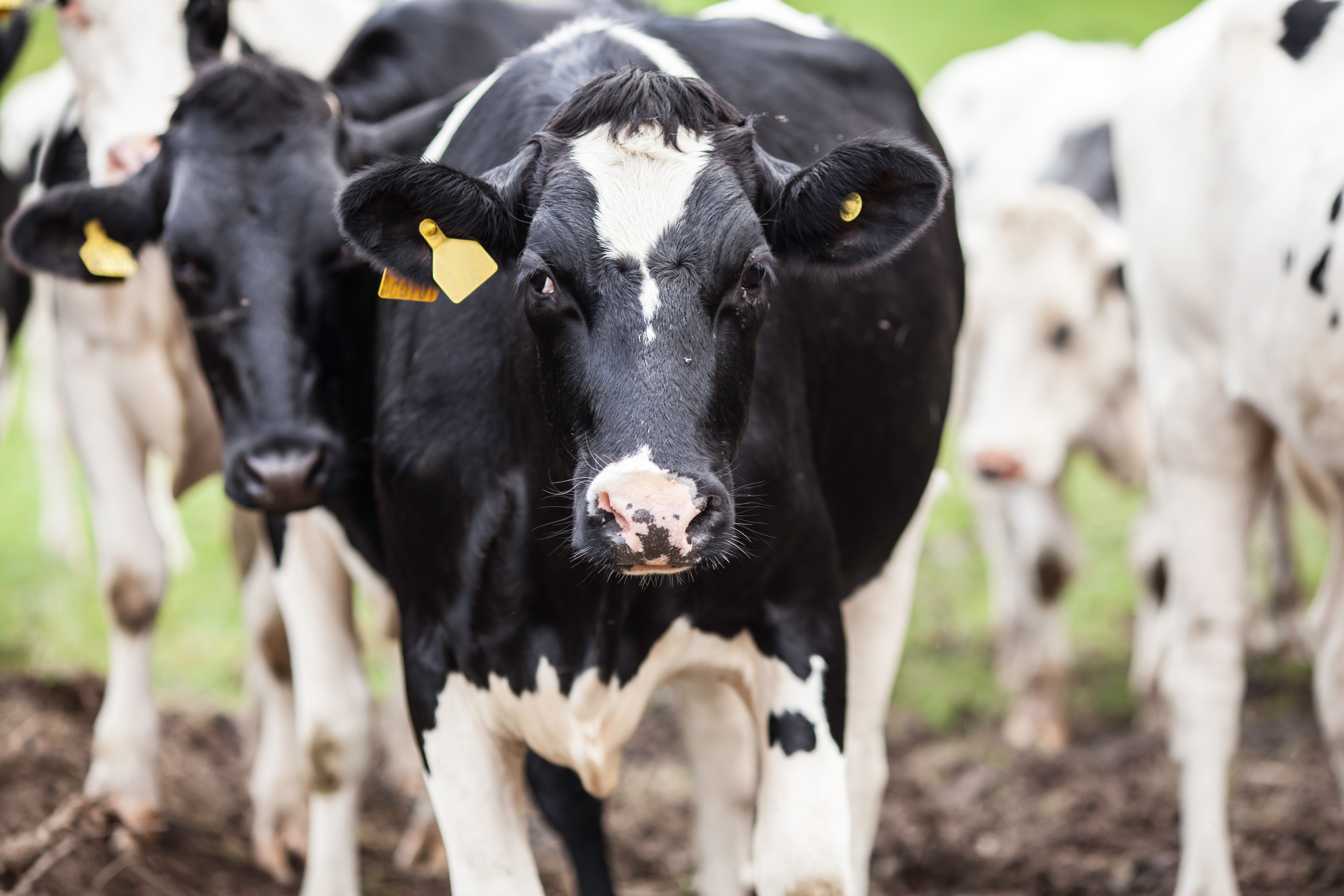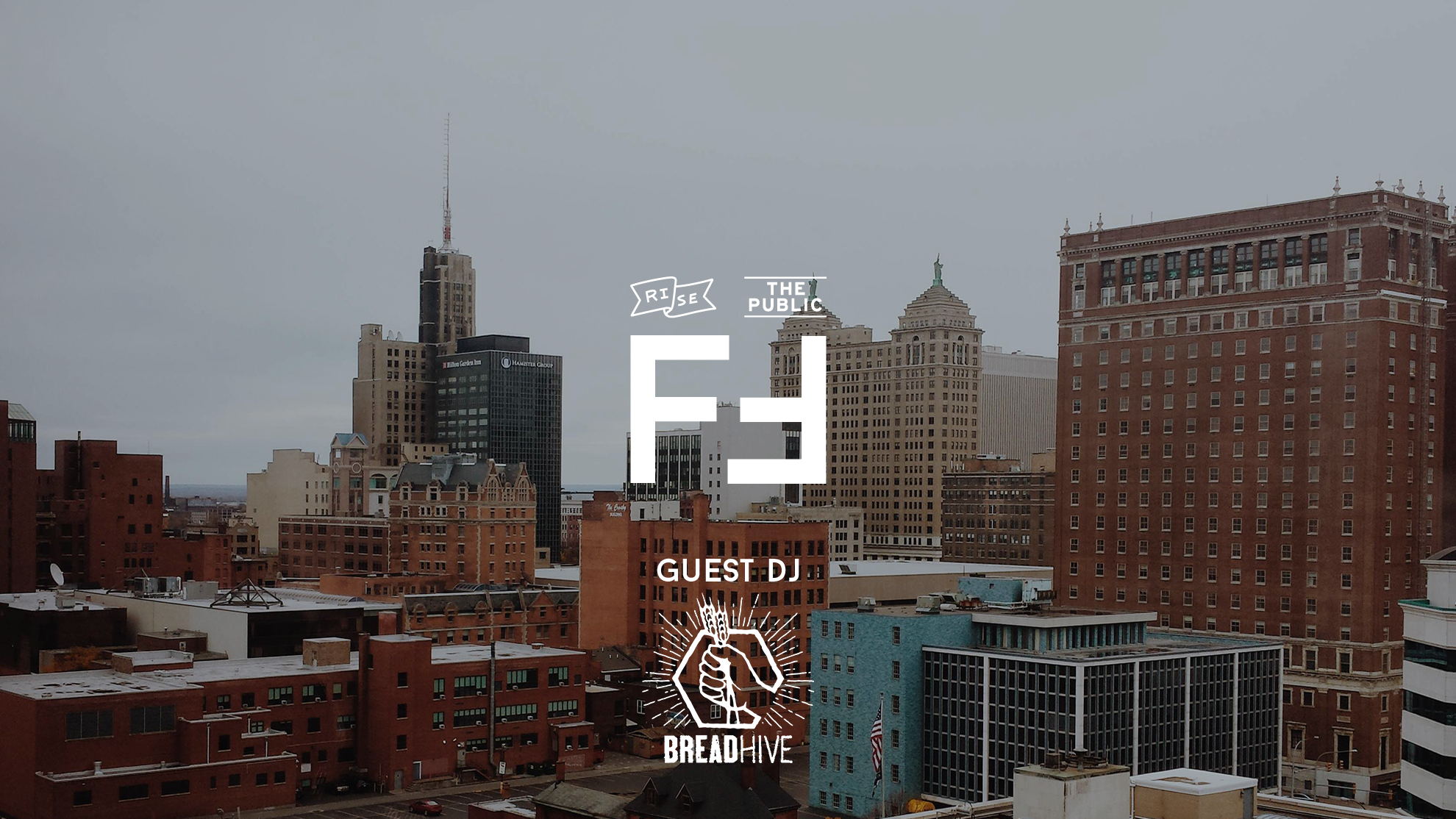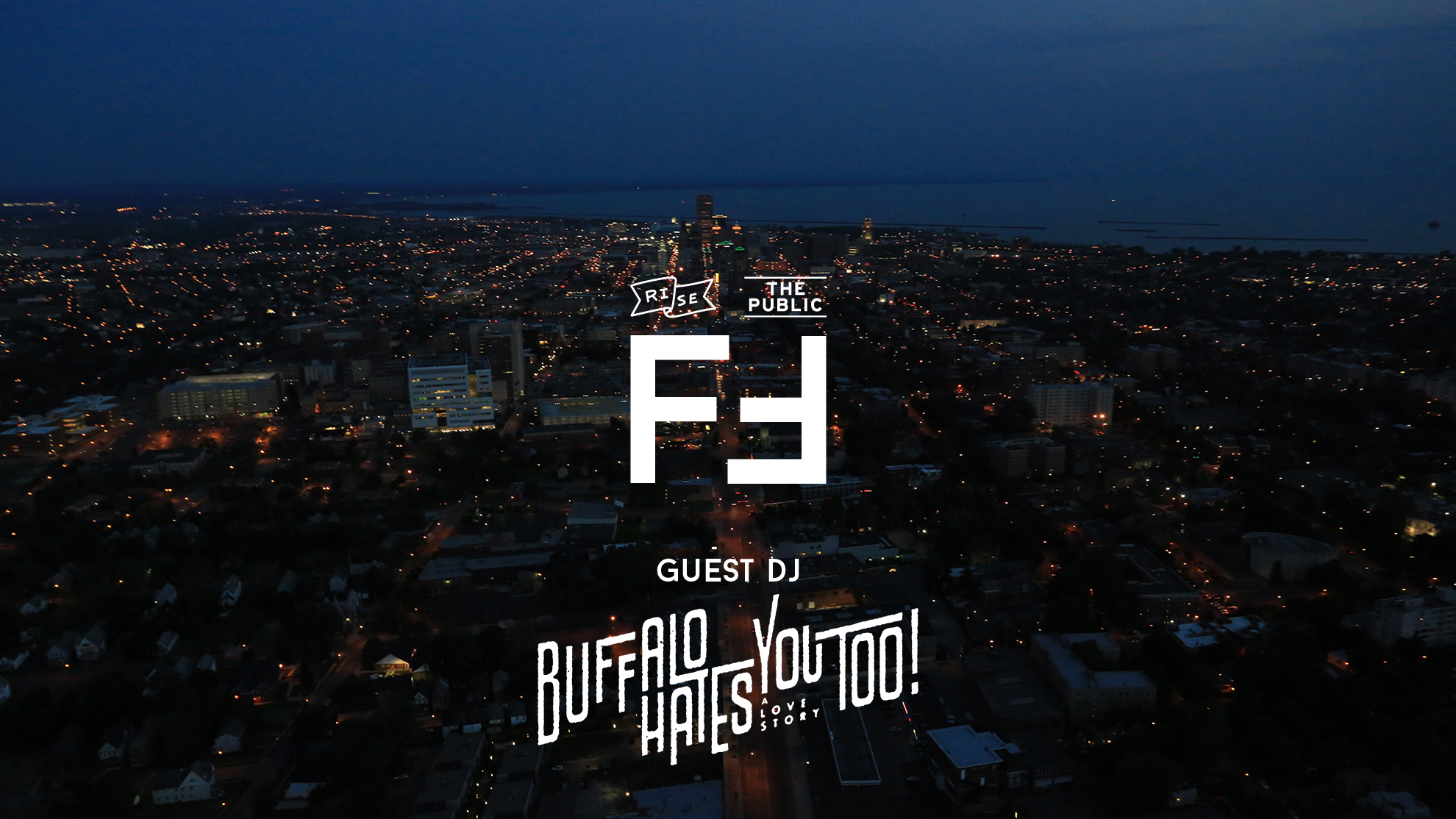Photo by Jenny Hill
Article by Kevin Heffernan
Earth isn’t going to save itself. Quitting red meat is really easy.
Unless you’re paid off by various industries, or you are a total idiot, you understand that climate change is real, it’s killing people today, and something’s got to change now to reverse its effects. There was this back end hope that technology would somehow save us like it always has, but it’s just not happening.
Climate change is massive. Everyone flirts with the thought that their own actions will have no impact whatsoever, and that this can be some other generation’s problem (Ahem, Baby Boomers). But ask the people dealing with the affects of rising sea levels and drought, famine, wildfires and more if they think it’s someone else’s problem. The time to do something is now, and reducing demand for the things fucking up the environment the most are a really easy start. It’s hard to take a train for a week across the country instead of flying in six hours, and this is WNY – we want a larger vehicle that doesn’t mind the snow. Where we can make a very large difference is in how we eat. Check this map out:

Look at the amount of land reserved for cows, and then the land reserved for feeding livestock. It’s nearly half. Holy shit. Right now, we’re even bulldozing the Amazon for beef. Forget all the carbon dioxide those plants and soil were keeping out of the atmosphere before being cleared, there’s still so many unknown plants in there that could cure every disease we have, but we gotta eat that BEEF, son! And we gotta eat it cheap. It has consequences. Beef production uses massive amounts of water, it has heavy CO2 production, it requires millions of acres dedicated to food production just for them to eat, these animals are huge and require so much fuel to be moved around the country, and not to mention the abhorrent conditions these animals live in thanks to McDonald’s destroying the market.
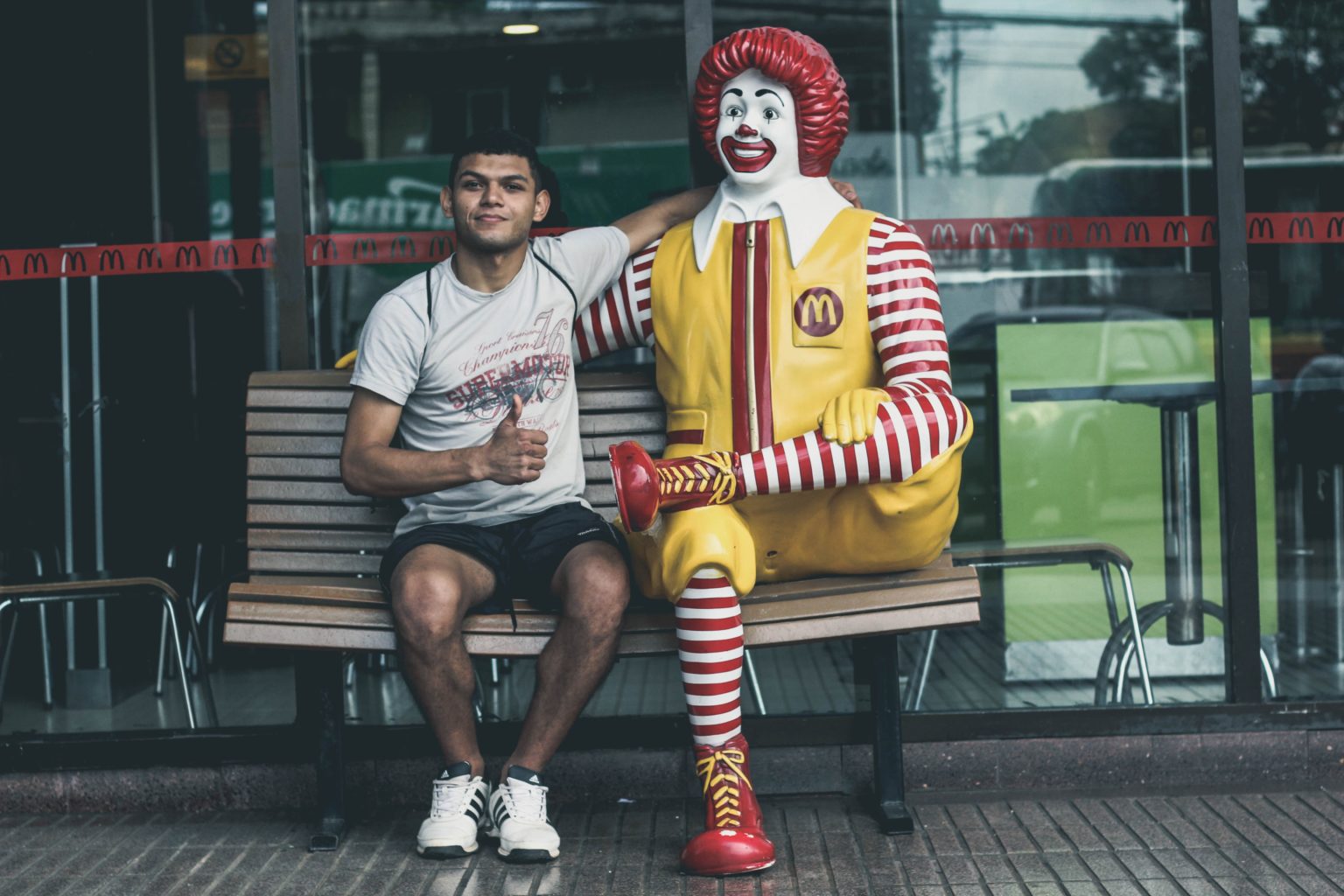
Since the beginning of 2018, I’ve “given up” beef. I put it in quotes because while I probably should be morally outraged by the treatment the majority of cows endure thanks to mass production altering the entire market and spreading disease to give everyone double cheeseburgers for $1, I do it mostly for environmental reasons. I can decrease demand and if many others do too, maybe more land is dedicated to growing food for human consumption, or a forest gets to stand unharmed.
I’m not a 1990s vegeterian about it where I make everyone else feel bad, or ask a host to cook something different for me. If I come to your house and you have put steaks on the grill, I’ll eat it, and likely enjoy it. But I won’t buy it and I won’t order it out. Most days, it’s really easy. Other days, when friends ask me to meet them at ABV, it’s difficult. But my life is ultimately unchanged and I feel like I’m contributing to something, even if my personal impact is microscopic.
I wanted to see who else out there had quit red meat, and whether they found it challenging. A crazy number of replies came in on Facebook, listing everything from advances from Impossible Burgers and meat made somewhat artificially in labs, to increased consumption of turkey, pork, fish. But some great input also came in from farmers offering alternatives to quitting. I’ll list a few of those here:
Simply stopped eating it and eventually didn’t even crave it any longer. I’m now fully vegetarian and do not regret it.
– Kate
I did. I don’t miss steak, but Beyond / Impossible burgers help with the burger cravings! And they are getting a lot easier to find at popular restaurants.
– Josh
The key to how to you can stop eating red meat is to stop eating red meat.
– Amy
I’m assuming this is for climate change/carbon emission issues, so I wouldn’t really recommend the meatless alternatives, rather just focusing on eating good pork and chicken dishes at home. But a single pork chop and a bunch of veggies and your favorite simmer sauce or curry and have stir fry with just one single serving of pork for the two of you. Also, using ground pork for meatballs in spaghetti. Stew some chicken and do tacos. Be consistent and use less meat in your meals and more veggies.
– Jesse
I became a vegetarian about 3.5 years ago. My wife was(is) a vegetarian, so I had a fairly easy transition. Basically, the less meat I ate, the worse I felt when I ate it. I became a vegetarian at the start of fall travel season, which also gave me a confidence boost when I was able to maintain the diet.
– Chris
I’ve been vegetarian for 20 years and then vegan 8 years on top of that. It’s super easy nowadays— there are meat-like products everywhere (Beyond Burger, Gardein products, Tofurky sausages, etc). So easy! Just make a usual meal you’d make (for example spaghetti and meatballs) and switch out vegan meatballs for cow meatballs. Even Aldi has vegan meatballs now!
(Avoiding meat and dairy is ‘single biggest way’ to reduce your impact on earth)
– Tonya
I drastically reduced red meat intake about 12 yrs ago for climate reasons and it was pretty easy — I craved meat but simply began choosing options that associated with much lower carbon emissions (basically not cows or pigs). Everyone’s different, but personally I didn’t miss red meat at all and was fully satisfied with other meat. I still eat a lot of meat but ~95% of my intake is chicken/turkey/fish.
Someone above noted the problem with sourcing fish sustainably and I am always aware of that and will also recommend Seafood Watch for consumer info.
I also have serious ethics concerns related to meat eating and aspire to be a vegetarian (impossible burger was delicious, and I’m excited for the Memphis Meats lab-grown burger!), but in my view (and supported by science), it’s fortuitous that the more carbon-friendly meat options are also the more ethical options.
– Mike
I never found it challenging to give up red meat. Bacon’s a different story. And sometimes I “accidentally” eat some. Nobody’s perfect.
– Kerry
The conversation changed when Michael Parkot, a Wyoming County farmer and owner of Always Something Farm chimed in with a picture of a steak he was making that very moment.
“I raise my own, it’s glorious and I can’t give it up”
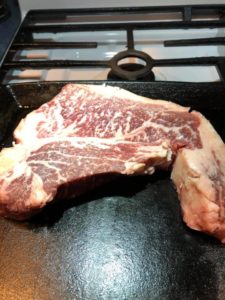
As the conversation shifted, Michael offered alternatives. We’ll show a preview here, and then likely have a part II of this blog in the coming weeks where we can learn how beef, if treated like a delicacy such as lobster, where you’re willing to pay more, and eat less, could be a sustainable meat to consume.
Michael Parkot, Farmer:
If you’re looking to do this for environmental reasons, might I recommend that you reconsider it.
Find a local farmer, who utilizes holistic pasture based management practices, and wants to build a relationship with you. If you need a guy I know a few.
Mike Habberfield, Ecologist, Geography and Ecosystem Restoration:
Agreed, and I fully support that! The problem is it doesn’t scale up to meet the world’s meat demand. So to meet climate and environmental goals, we still collectively have to reduce meat consumption and choose lower impact meats
Michael Parkot:
Respectfully, I have to disagree with you. The entire model is scaleable, sustainable, and possible. There’s a few key pieces that the populous of the nation and world will have to put into place first.
1) consumers have to be willing to stop buying commercial Concentrated Animal Feeding Operation (CAFO) products. If demand falls for their product they will either adapt or go the way of the dinosaurs
2) Consumers will have to be willing to spend more on their food. The ethical and appropriate manner of raising livestock for meat is more expensive than these super efficient feedlots.
3) farmers will need to not just farm, they will have to adapt to a changing ecosystem, and develop relationships with the public at large
4) when animals are raised correctly, meaning respect is given to their attributes that make them unique, allowed to range freely or in a controlled environment they produce more nutrient dense food, hence decreasing consumption.
5) current farming practices and the corn, wheat, soy mindset need to go away
6) stop subsidizing and selling futures on crops
I should disclose that I am a small scale local farmer looking for flip the current food system on its head
Mike Habberfield:
I totally agree with you on points 1, 3, 5, and 6 …. and halfway on points 2 and 4! Regarding 4, I don’t think even the very best practices can increase the nutrient per unit energy ratio to make it fully scalable unfortunately. For 2, yes consumers will have to, and should, be willing to spend more for quality meat. But that will inherently reduce demand/consumption. You’re right that if the true cost of meat was on offer, without subsidies and externalized costs, then consumers would see higher prices. So I think in general we’re on the same page here: we ought to reduce overall meat consumption by limiting the meat we do eat to high-quality, more expensive product. My point being that if all the meat that the average person ate was sourced and priced according to all of your points, they wouldn’t be able to afford it and therefore eat less of it.
Michael Parkot:
Perhaps, or change their priorities, less video games, play money and better food. It’s all about priorities
Mike Habberfield:
That’s a good point, and I definitely think the model you’re trying to build would help in that regard. Anything that gets people more in touch with their resources and food has many personal and societal benefits!
If you get anything out of this post, and this conversation, hopefully it’s that Facebook still has its usefulness when conversations are kept civil, even between strangers, and that there are so many options out there for you to consider in lowering your impact on the environment. The next part of this series will speak further with Michael about how McDonald’s has essentially ruined the market, and much more.

